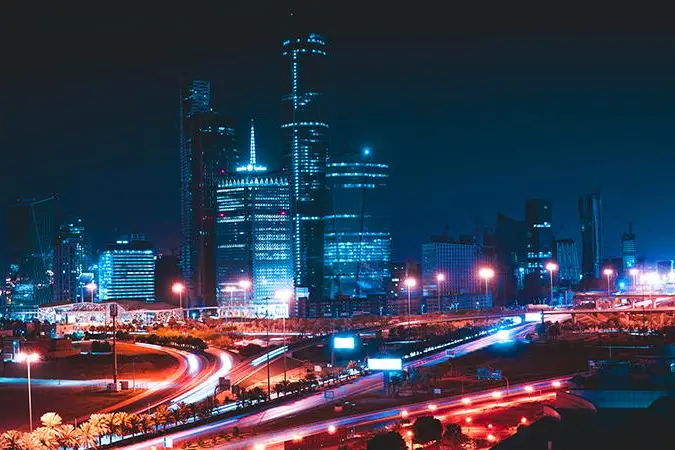PHOTO
RIYADH: The Riyadh Global Medical Biotechnology Summit opened on Tuesday under the patronage of Crown Prince Mohammed bin Salman, with experts expressing hope that Saudi Arabia will soon be a regional hub in biomedical technology.
Dr. Bandar Al-Knawy, CEO of health affairs at the Ministry of National Guard, said the summit aims to meet the aspirations of Vision 2030 by developing the health sector, and promoting investment in biomedical technology.
He confirmed that the summit is of great importance due to the challenges the world faces in developing vaccines, and the impact medical technology has created on the future of health, industry and investment.
Al-Knawy said the three-day summit would be joined by experts and leaders in the health sector from around the world, with the aim of presenting opportunities and shedding light on strategies for optimal investment in medical technology and its role in developing vaccines and cellular and genetic treatments.
He indicated that the summit will include launching partnerships, and will witness the signing of agreements between major international companies and government sectors, which will have positive repercussions for the future of the industry.
Several memoranda of understanding will be signed in the field of pharmaceuticals and medical technology between global companies, the Ministry of Investment and the Ministry of National Guard’s health affairs department, including with AstraZeneca and Pfizer, to locally produce coronavirus disease vaccines.
Speaking at the summit, organized virtually by King Abdullah International Medical Research Center, Dr. Ahmed Alaskar, summit chairman and the center’s executive director said: “We are bringing a unique, interactive and dynamic gathering from local and international key players to make Saudi Arabia the gateway to thriving biotechnology.”
Speaking at a roundtable discussion on “Biotechnology in Saudi Arabia: Challenges and opportunities,” Suliman Al-Mazroua, CEO of the National Industrial Development and Logistics Program, said the Kingdom has taken strategic initiatives that will help in localization of vaccine production.
“We believe that Saudi Arabia will be a regional hub for manufacturing biomedical products,” said Al-Mazroua.
Nizar Al-Hariri, CEO of the National Industrial Development Center, echoed these sentiments, saying that the Kingdom is working with key stakeholders to achieve this goal.
He added that the center is also working with the King Abdullah University of Science and Technology and big bio-pharma companies.
Malak Al-Thagafi, director of the general directorate for the national RDI and associate researchers, and professor at King Abdulaziz City for Science and Technology, said: “We have a very advanced healthcare system that is of great help, but we lack clinical trials and we need to work hard to support the vision of making the Kingdom a regional hub in biotech.”
Elie Haddad, senior adviser and project lead at Riyadh Biotech City, said: “The way to attract talent is to attract the companies they work for. But in order to attract companies we need funding, a good proposal and (to) build institutions with working regulation and good incentives to bring in talents, and private partners for the ecosystem.”
Pierre J. Magistretti, director of KAUST’s Smart Health Initiative, said the university has hired about 25 international faculty whose research is biomedically relevant.
He stressed academia’s important role in developing the biotechnology landscape, adding that KAUST has a dual mission, one in academia and one in developing research projects.
“KAUST has a mission to contribute to the economic development of the Kingdom through translation of discoveries into innovation,” he noted.
Menelas N. Pangalos, executive vice president of BioPharmaceuticals R&D at AstraZeneca, spoke about developing a COVID-19 vaccine for the world at a remarkable pace.
“We joined hands with Oxford to produce it for the world without thinking of money, we did the service without making money. Vaccine development typically takes a decade or longer, but we delivered within a period of about 12 months. Our team was working round the clock,” he said.
Disclaimer: The content of this article is syndicated or provided to this website from an external third party provider. We are not responsible for, and do not control, such external websites, entities, applications or media publishers. The body of the text is provided on an “as is” and “as available” basis and has not been edited in any way. Neither we nor our affiliates guarantee the accuracy of or endorse the views or opinions expressed in this article. Read our full disclaimer policy here.
© Arab News 2021





















